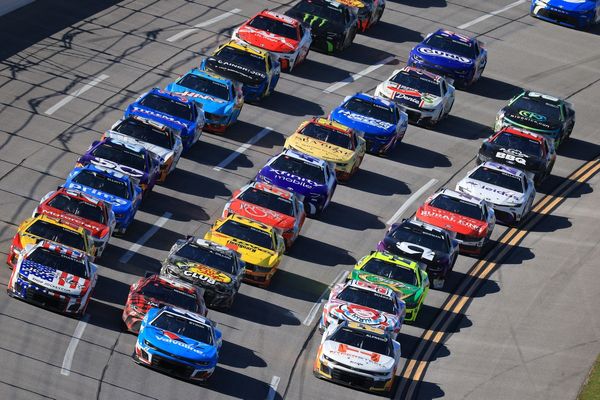
Auckland Council joins calls for crackdown on alcohol sponsorship and marketing, and pushback against legal stalling tactics by supermarkets and liquor stores.
Three All Black entrepreneurs have pulled their contentious advertisement for pre-mixed spirits, amid fizzing tensions over the marketing of liquor to young people and in vulnerable communities.
The decision to withdraw the social media promotion, depicting a young woman wakeboarding while sculling from a can of their new RTD brand, comes ahead of an anticipated ruling from the Advertising Standards Authority this week.
And New Zealand's biggest and most powerful council, Auckland, is throwing its weight behind a parliamentary crackdown on alcohol marketing, especially around sport. The unanimous council vote on Thursday came after the chairs and chief executives of all 20 district health boards called for "urgent" change to alcohol law.
Former All Blacks Stephen "Beaver" Donald and contemporaries Damian "Grins" McKenzie and Anton Leinert-Brown are behind the new Grins alcohol brand, which has expanded to be sold through nearly 200 liquor outlets since they launched it at Christmas.
The Advertising Standards Authority is to rule on Friday on an advert that, according to Alcohol Healthwatch's complaint, is using "heroes of the young" and is in direct contravention of a ban on advertising alcohol use in connection with water sports.
It's one of three complaints about Grins' social promotion, mostly on the Instagram accounts of the three rugby players. McKenzie, a director of the company, was the subject of a previous advertising complaint, when he and Beauden Barrett competed to pour three flutes of Moët & Chandon champagne at the ASB Tennis Classic in 2019.
"There’s the far bigger call to action to just ban alcohol advertising outright and be done with the nitpicking, as we did with tobacco." – Chlöe Swarbrick, Green MP
The three rugby stars declined to comment on the latest complaints, but when they launched the product in December, they used former All Black coach Sir Graham Henry to front adverts. “As professional athletes, we’re all competitive and want it to be a success, so we’ll do what we need to get there," Donald said. “And of course, make sure throughout the ride, we keep having a good time."
Donald, 38, is somewhat immortalised for his unlikely starring role as a substitute first-five kicking the All Blacks' critical points in the 2011 Rugby World Cup final. But he also served out the end of his NZ rugby career at the Chiefs and Counties Manukau, where alarm about youth drinking is at its highest.
Luisa Silailai, who runs the Alcohol Harm Minimisation Programme for Counties Manukau District Health Board was the first concerned expert to address Thursday's council meeting. She was supporting a motion from councillors Josephine Bartley and mayoral candidate Fa'anānā Efeso Collins to back a parliamentary bill that would reform the local licensing appeals process, and wind down alcohol advertising and sponsorship of sport.

In a paper to the council, Cr Bartley cites evidence that one in three 18-to-24-year olds are drinking hazardously, and the problem extends to younger teens as well. Research shows a causal relationship between alcohol marketing, especially alcohol sponsorship of sports, and youth drinking. "In New Zealand, half of alcohol abuse and dependence cases have developed by the age of 20," she adds.
Around New Zealand, councils' attempts to set in place local alcohol policies under the Sale and Supply of Alcohol Act have been frustrated by drawn-out appeals by supermarkets and liquor chains. Now Auckland Central MP Chlöe Swarbrick, from the Green Party, has drafted a members' bill to tilt the playing field back towards the councils and health regulators.
Local Government NZ and Hamilton City Council have already expressed their concerns to Parliament about the use of the appeals process to stall any systematic controls on liquor sales. Christchurch City Council spent $1 million on legal fees before conceding defeat in its attempt to institute a statutorily-mandated policy. Wellington and Hamilton were also bogged down in legal challenges and have failed to set in place alcohol policies in the decade since the law was enacted.
"It really signals how we view alcohol in this country, the fact that we glorify it, and that so many sports players want to get behind and promote New Zealand's most harmful drug – knowing that it kills people on our roads, it's involved in family violence and cancer deaths." – Dr Nicki Jackson, Alcohol Healthwatch
And Auckland City Council has also incurred $1 million in legal costs. It proposed to restrict supermarket alcohol sales to 9pm, but grocery chains Foodstuffs and Woolworths have fought the policy all the way to the Supreme Court – where it now sits, still unresolved after seven years.
Alcohol Healthwatch executive director Dr Nicki Jackson said councils had been hamstrung in their attempts to minimise the harm of alcohol to the young and vulnerable.
"It's a well known tactic internationally to just delay, delay, delay regulation. So here we are: The regulation for local alcohol policies kicked off in December 2013, and only 35 percent of the New Zealand population are covered by local alcohol policies. That's 41 councils, but that's not Auckland, it's not Hamilton. It's not Christchurch, it's not Wellington," she said.
"It really signals how we view alcohol in this country, the fact that we glorify it, and that so many sports players want to get behind and promote New Zealand's most harmful drug – knowing that it kills people on our roads, it's involved in family violence and cancer deaths. I think it really speaks volumes to the way that we look at this product."
The Grins social promotions feature people drinking the RTD while kicking rugby balls, game-fishing and wakeboarding. Swarbrick said her bill would prevent a sport being used to advertise alcohol, though it wouldn’t inherently prevent an alcohol advertisement depicting unofficial sport – which was where advertising standards around depicting dangerous activities came in.
"This is also where there’s the far bigger call to action to just ban alcohol advertising outright and be done with the nitpicking, as we did with tobacco and as was recommended in 2010 by the Law Commission."
Justice Minister Kris Faafoi has promised to decide the scope of a review of the Sale and Supply of Alcohol Act in the next month or two.
But Swarbrick said it wasn't enough: "We’ve got review after review after review on alcohol gathering dust, as with other substances. The problem is political spine. We know what we have to do and the evidence is clear."







